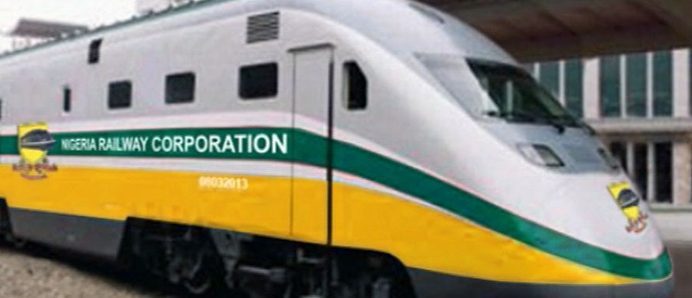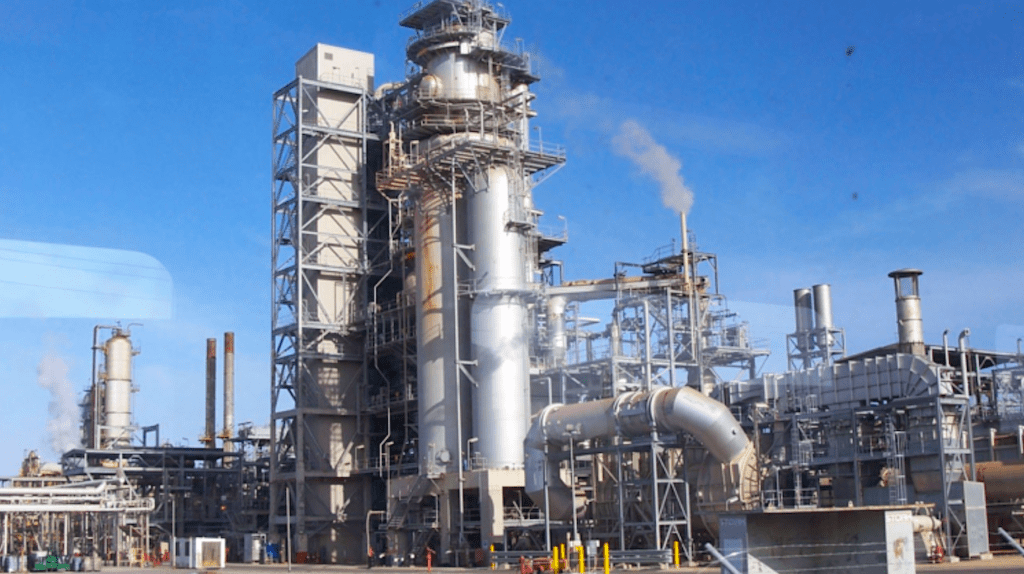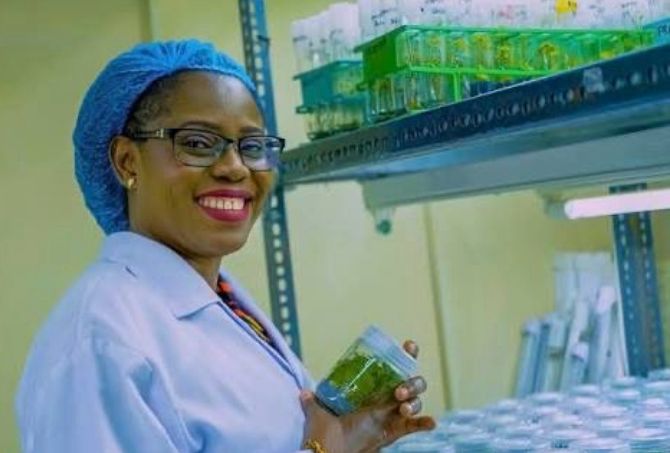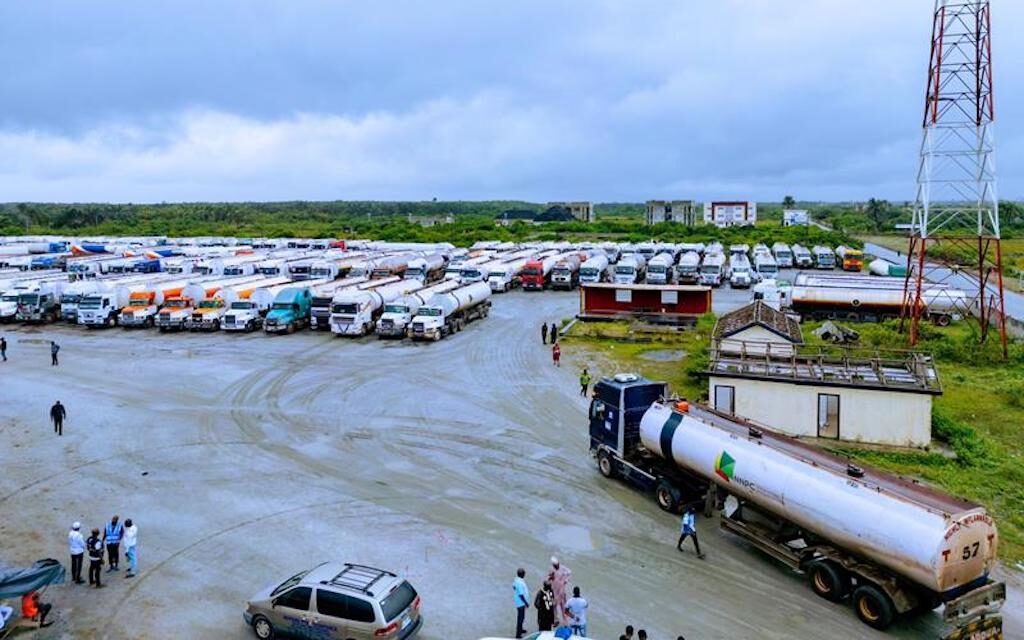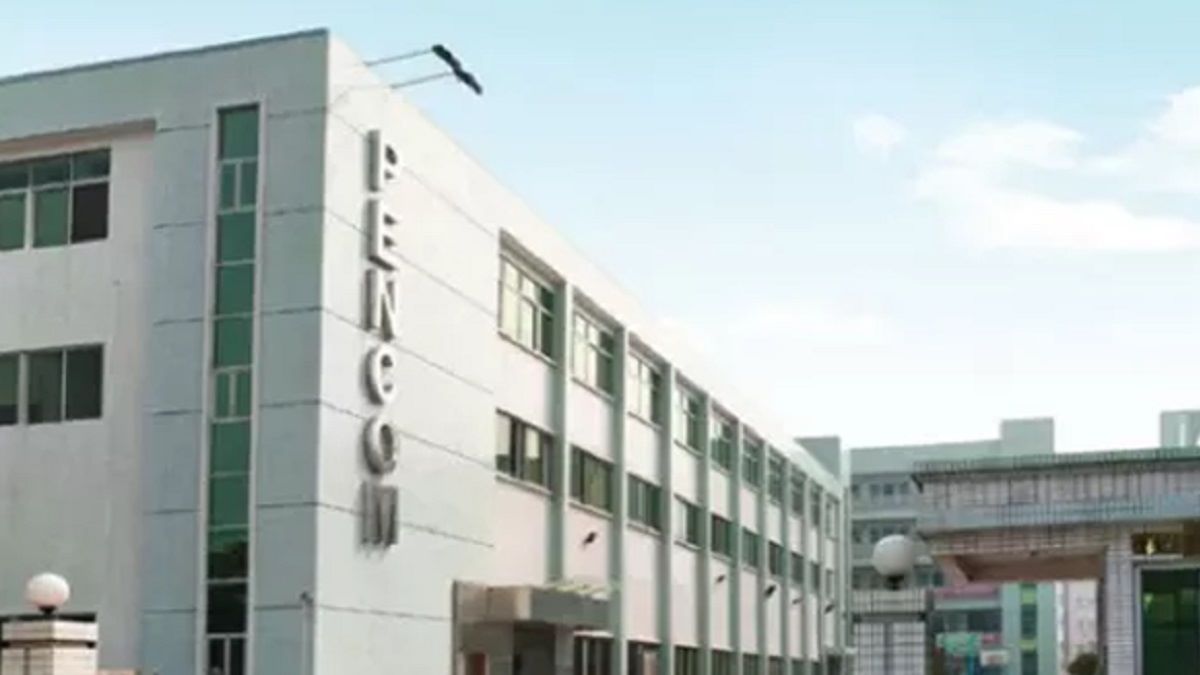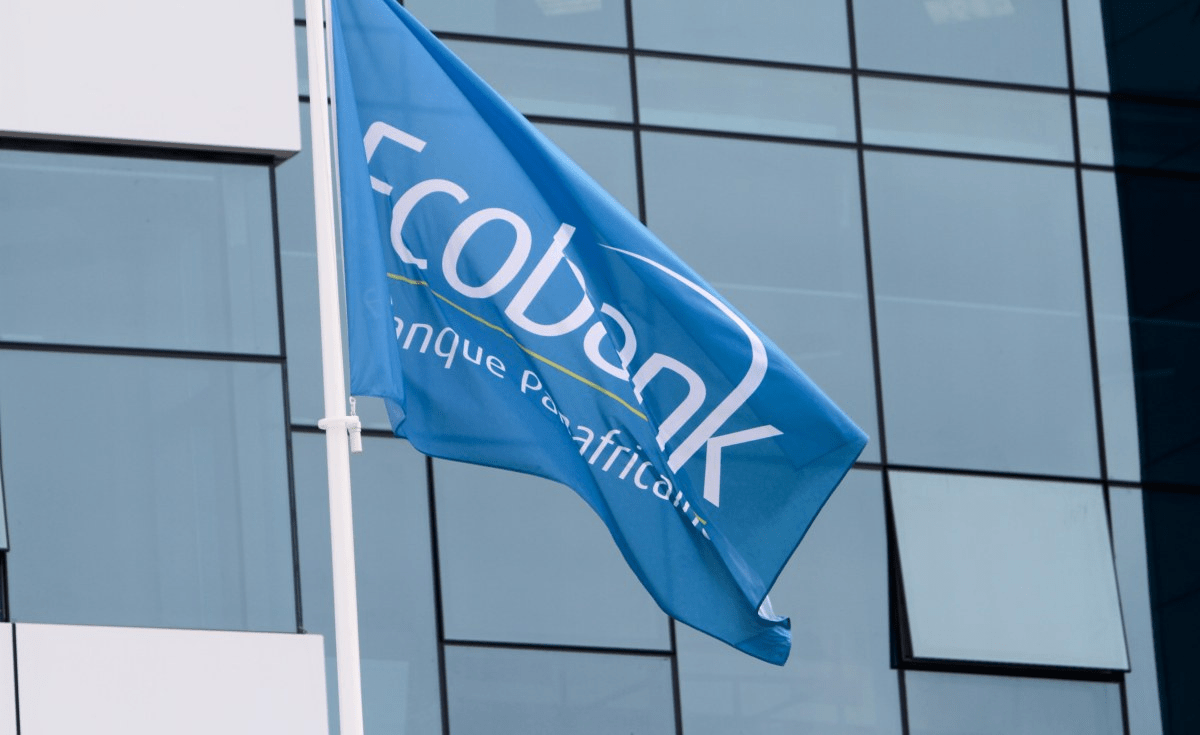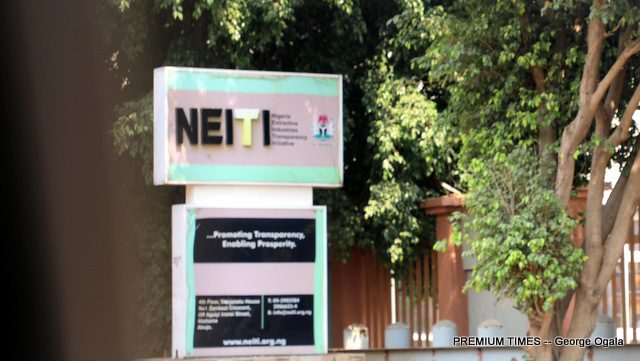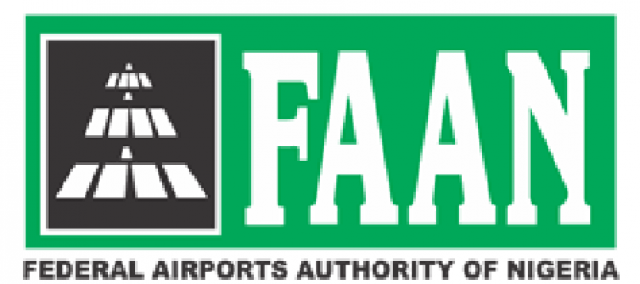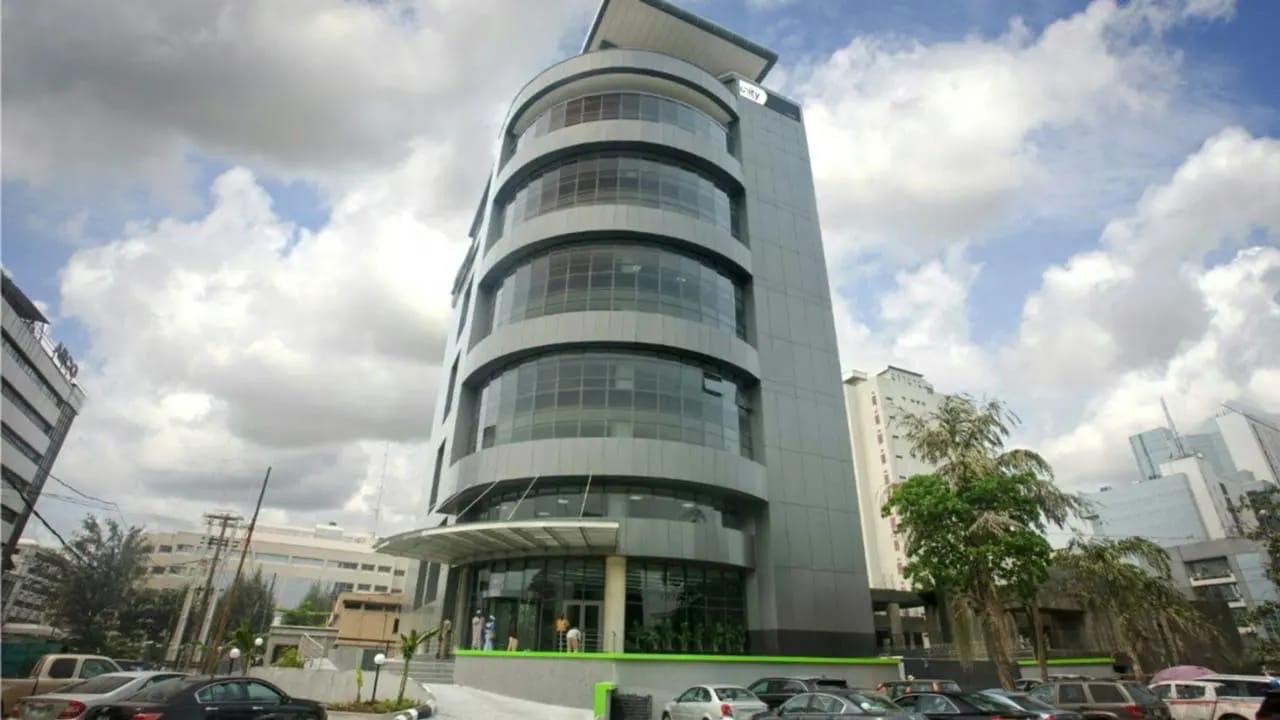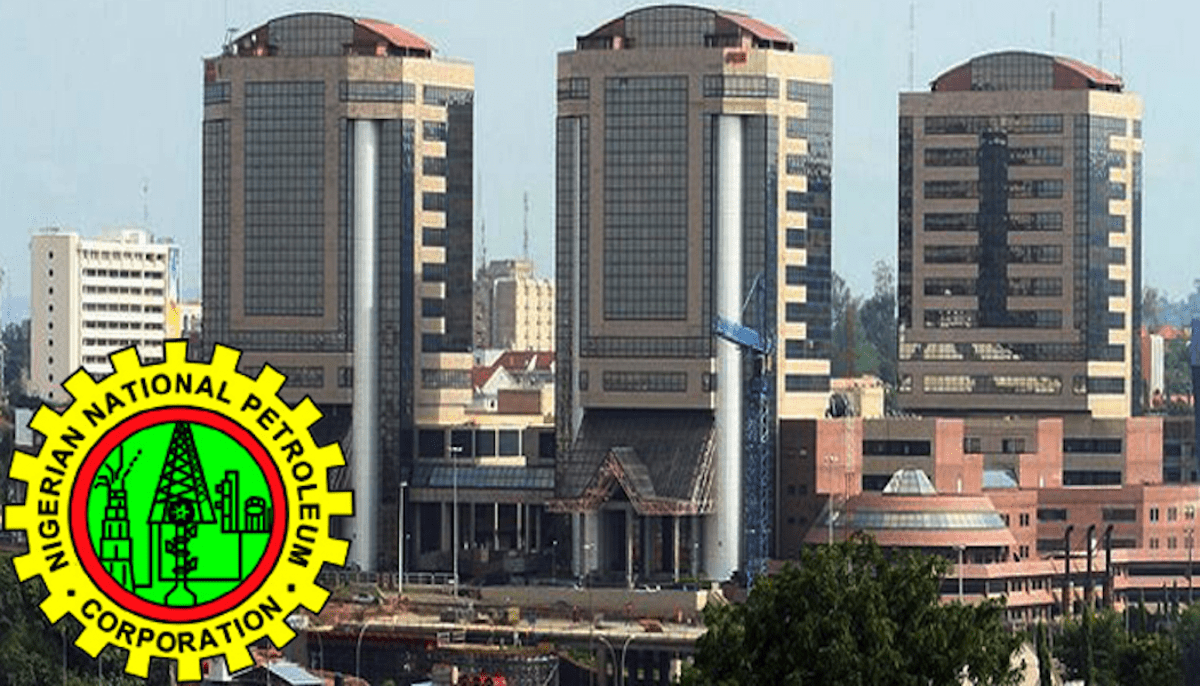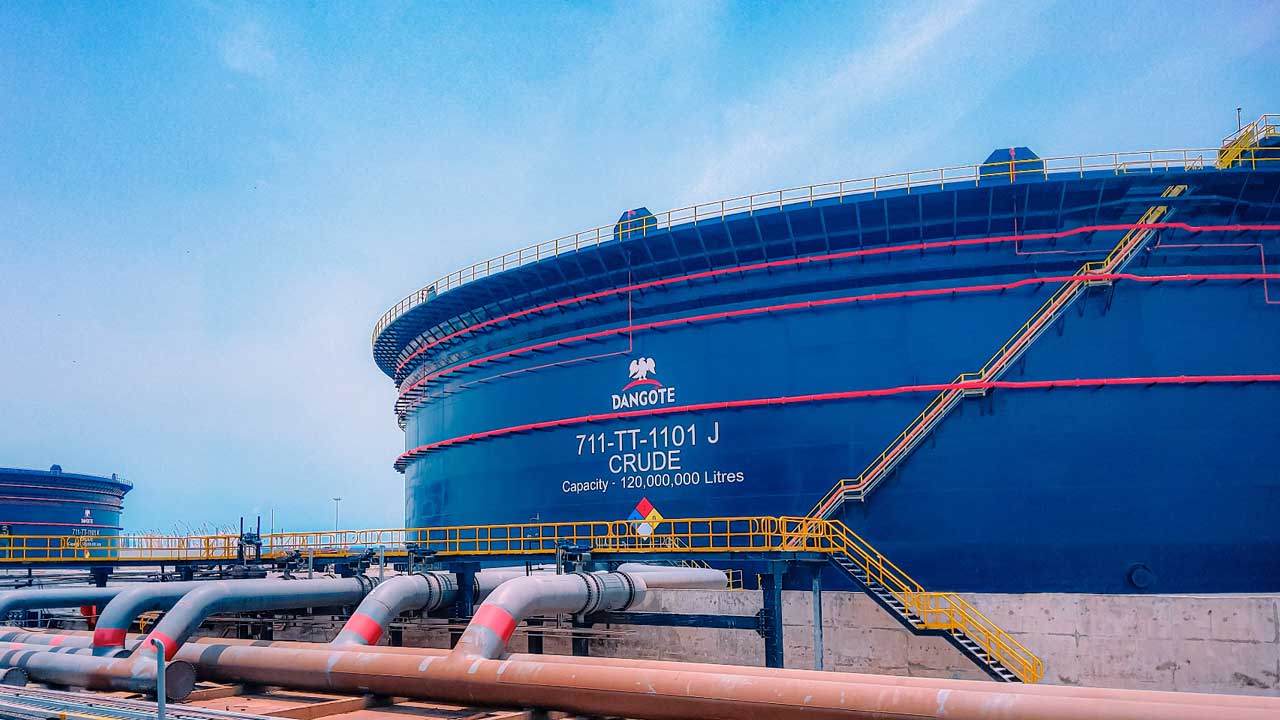Fatodu: Lagos Dominance in NYG Result of Investment in Grassroots Sports
Fatodu: Lagos Dominance in NYG Result of Investment in Grassroots Sports
Organisers of Delta Principal’s Cup Pick Sept 18 for Kickoff
Organisers of Delta Principal’s Cup Pick Sept 18 for Kickoff
Fans to Pay N3,000 & N1,000 to See Eagles, Amavubi Clash
Fans to Pay N3,000 & N1,000 to See Eagles, Amavubi Clash
Football fans will pay the sum of N3,000 and N1,000 respectively to watch Saturday’s 2026 FIFA World Cup qualifying match between the Super Eagles of Nigeria and the Amavubi of Rwanda at the Godswill Akpabio Stadium in Uyo.
According to NFF’s Director of Marketing and Sponsorship, Alizor Chuks, tickets
for the VIP section will go for N3,000 and the popular seats will sell for N1,000 at designated centres within the Uyo metropolis from Friday morning.
“It is important to let the general public know that the NFF Security Committee has declared total war on all ticket manipulators this time. Ticket fakers and racketeers will be dealt with.
“All tickets will be scanned at the gates. All intending spectators are advised to buy their tickets from accredited ticket sellers. Fake ticket sellers or holders will be arrested and prosecuted.”
Meanwhile,
the Akwa Ibom State police command has assured of adequate security for players, fans and visitors already in the state for the big game.
“All arrangement has been put in place to ensure a hitch-free World Cup qualifier between Nigeria and Rwanda this coming Saturday at the Godswill Akpabio International Stadium, Uyo,” the Commissioner of Police (CP), Baba Mohammed Azare, said while briefing Journalists at the State Police headquarters, Ikot Akpan Abia, Uyo.
“We are determined to guarantee that football-loving Nigerians enjoy the football match under a peaceful atmosphere devoid of any infractions of law and has directed the deployment of specially selected officers knowledgeable in crowd control and policing events to provide top-notch security before, during and after the football match,” the CP said.
The CP, therefore, enjoined all football fans visiting the ‘Nest of Champions’ to conduct themselves in a most orderly and hospitable manner, noting that “sport is a veritable means to promote unity, solidarity and cultivate enduring friendship.”
The post Fans to Pay N3,000 & N1,000 to See Eagles, Amavubi Clash appeared first on THISDAYLIVE.
Football fans will pay the sum of N3,000 and N1,000 respectively to watch Saturday’s 2026 FIFA World Cup qualifying match between the Super Eagles of Nigeria and the Amavubi of
The post Fans to Pay N3,000 & N1,000 to See Eagles, Amavubi Clash appeared first on THISDAYLIVE.
Awolowo House Pulled Down for New Technology Mall
Awolowo House Pulled Down for New Technology Mall
Olawale Ajimotokan in Abuja
The iconic Awolowo House, in the heart of Ikeja, Lagos and a symbol of innovation since 1978 has been demolished.
The building, managed by Wemabod, a subsidiary of Odu’a Investment Company Limited, owned by the six South-west states of Lagos, Ogun, Osun, Oyo, Ondo and Ekiti is to be rebuilt into a modern and magnificent technology haven called Awolowo Technology Mall.
The redevelopment of the Awolowo Technology Mall, is to commemorate and immortalize legendary nationalist, Chief Obafemi Awolowo’s legacy of innovation, quest for knowledge, spirit of discovery, and excellence.
The Managing Director of El- Salem Nigeria Limited, Mr Ben Gbade Ojo,stated in Abuja that the new Awolowo Technology Mall would more than double the previously available commercial space of Awolowo House from 4,800 sqm to over 9,000 sqm.
Gbade Ojo, whose company is in partnership with Wemabod to develop the Awolowo Technology Mall added that the Awolowo Technology Mall, now famously called A.T Mall, was a place where top-notch information technology companies would set up shops and offices to exhibit and market the latest information communication technologies and systems, as well as where the latest ICT products from global technological companies could be found in Nigeria.
“It is a place where leading ICT experts congregate and set up shops and offices, a place where ICT training is carried out by global ICT geniuses and where ICT puzzles find ready answers, and ICT problems find well-tailored solutions. You will likely find at the A.T Mall, any ICT product or electric product available in the world, and you may not need to travel outside Nigeria for the product. Whatever technology products or services you are in need of, come to A.T Mall, Ikeja, and you will get them,” he said.
A recent comprehensive report by data analytics firm, Statisense ranked Lagos as the world’s fastest-growing emerging technology ecosystem in 2025. The report published on X placed Istanbul in second position, followed by Pune. Belo Horizonte, Mumbai, Curitiba, Riyadh, Johannesburg, Chennai and Ho Chi Minh City completed the top ten. Analysts say the ongoing development of the magnificent Awolowo Technology Mall, now sought after by world-class technology firms, will further solidify Lagos’ now globally acknowledged status as a leading technology hub in the world.Statisense is a leading artificial intelligence data analytics company known for its annual ecosystem intelligence reports across emerging market.
Caption: L-R: National President, Julius Berger – Senior Staff Association, Comrade Erayokan Silverster;
Director, Adminstration, Julius Berger Nigeria PLC, Alh. Dr. Kaita Abdulazziz; and General Secretary,
Julius Berger – Senior Staff Association, Comrade Jamiu Akinola, during the presentation of
Excellence to the Director on behalf of CCESSA
The post Awolowo House Pulled Down for New Technology Mall appeared first on THISDAYLIVE.
Olawale Ajimotokan in Abuja The iconic Awolowo House, in the heart of Ikeja, Lagos and a symbol of innovation since 1978 has been demolished. The building, managed by Wemabod, a
The post Awolowo House Pulled Down for New Technology Mall appeared first on THISDAYLIVE.
Adekunle Awolaja: I Want a Sustainable AfRES With Physical Base in Nigeria
Adekunle Awolaja: I Want a Sustainable AfRES With Physical Base in Nigeria
Adekunle Awolaja, an Estate Surveyor and President of the African Real Estate Society (AfRES), tells Bennett Oghifo how AfRES evolved in West Africa and his efforts to ensure its spread across the sub region, particularly to the French-Speaking countries. He desires a sustainable AfRES and for it to have a physical base in Nigeria. He also speaks on AfRES’ conference coming up in Lagos this month
Tell us about the evolution of AfRES
The African Real Estate Society (AfRES) was founded in 1997 as part of the International Real Estate Society (IRES). AfRES is one of six sister societies within IRES. In North America, there is the American Real Estate Society (ARES); in South America, the Latin American Real Estate Society (LARES); in Europe, the European Real Estate Society (ERES); in Asia, the Asian Real Estate Society (AsRES); and in the Pacific region, covering Australia, New Zealand, Papua New Guinea, and neighboring areas, there is the Pacific Rim Real Estate Society (PRRES). Together, these six societies make up a global network dedicated to advancing real estate knowledge. AfRES held its first annual conference in 1998 in Maputo, Mozambique. The drive to bring AfRES to Africa was led by Prof. Karl-Werner Schulte, a German academic, who had long been part of the International and European Real Estate Societies. He recognised the importance of Africa having its own platform within the global network, and his efforts laid the foundation for AfRES. In the early years, the society was dominated by Southern and Eastern Africa. West Africa became more involved later, largely through the efforts of the late ESV Akin Olawore, a Nigerian professional and mentor to many. After attending the 2006 AfRES conference in Tanzania, he returned home determined to ensure Nigerian participation. In 2007, we went to Ghana with the collaboration of the national body of the Nigerian Institution of Estate Surveyors and Valuers (NIESV). The Lagos State branch of NIESV went to explore Ghana to see if they could join us. Olawore had mobilised colleagues and reached out to Ghana, leading to strong representation from West Africa. At the AfRES conference in South Africa in 2008, Nigeria brought not less than 70 delegates while Ghana contributed 28. That was when the West African chapter of AfRES became fully established. In 2009, Nigeria hosted its first AfRES conference at the Oriental Hotel, Lagos. Since then, the conferences have rotated among Eastern, Western, and Southern Africa. Over time, AfRES has grown into a continental platform for knowledge exchange and professional development. I became the President of AfRES in 2023, and before then I was the Chair of AfRES Nigeria in 2009, the Vice-Chair of West Africa in 2010. I have also chaired several conferences, including the 2018 conference in Abeokuta. We’ve rotated the AfRES conference among the three chapters. After Abeokuta we went to Arusha, Tanzania. We will hold the next conference this year (September) in Lagos. My focus throughout my tenure has been on expanding the society’s reach, strengthening regional collaboration, and deepening the link between academics and practitioners.
What are the objectives of AfRES?
The aim of AfRES, like its sister societies, is to promote real estate research, education, and professional networking. It was originally established by academics but has grown to include developers, investors, practitioners, policymakers, and professionals in every area of real estate. From inception, the vision has been to connect the “Gown and Town” – ensuring that research findings can be applied directly to real estate practice and policy development. AfRES has also built strong professional ties with institutions across the continent. We regularly organise activities that fulfill the society’s three pillars – education, research, and practice. For education, we have partnered with universities like Covenant University in Nigeria and Kwame Nkrumah University of Science and Technology in Ghana to host real estate summits and seminars. For research, we have encouraged collaborative projects and academic exchanges. For practice, AfRES often participates in professional conferences organised by national institutions such as the Nigerian Institution of Estate Surveyors and Valuers (NIESV) and the Ghana Institution of Surveyors (GhIS). I have personally attended the Ghana Institution of Surveyors’ annual conference several times – in 2022, 2023, and 2024 – continuing a tradition of mutual exchange that has existed for years. The late Mr. Eseogheva also ensured that Ghanaian colleagues, including leaders like Emmanuel Martey, who is both a traditional king and a past president of GhIS, were regular participants in AfRES conferences in Nigeria. He attended our gatherings in Ibadan (2016), Abuja (2017), and Lagos (2019), strengthening the ties between our two countries. Through these collaborations, AfRES has remained faithful to its mandate: promoting real estate education, fostering impactful research, and creating opportunities for practitioners to network and grow. Even though COVID-19 disrupted some of these efforts, we quickly resumed activities afterward and have continued to expand our programmes.
What has been your contribution so far to AfRES?
What I have tried to do is to expand the frontiers of AfRES beyond what we have. One of my greatest achievements has been the Francophone Project, where we thought of having an incursion into the Francophone countries of West Africa. We also had a thought of having incursion into the Portuguese-speaking countries- six of them. First of all are the French-speaking countries. They are the majority. For a long time, AfRES was dominated by English-speaking countries, even though much of West Africa is French-speaking. After years of planning, I was able to launch AfRES Francophone in Dakar, Senegal on May 30, 2023. The Mayor of Thies was a Surveyor. The conference brought together delegates from Mali, Côte d’Ivoire, Benin, Togo, Cameroon, Mauritania, and Guinea. Any conference that we have now, we will be having the French and English-speaking countries. This was a historic moment because it gave French-speaking Africa an active voice in AfRES. Eventually, AfRES will be known in all of Africa. We have made incursion into the Caribbean and we’ve AfRES in diaspora for African real estate practitioners in the diaspora.
What would you like to see AfRES achieve in the future?
I want a sustainable AfRES. I want AfRES to have a physical base in Nigeria. My dream is to have an African Real Estate Academy that will train, research and have a lot of knowledge-based solutions so that the Town and Gown will be mixed in a physical environment. Looking to the future, my dream is to establish an AfRES Academy – a physical institution in Nigeria that would serve as a hub for training, research, PropTech innovation, and practical real estate development. It would be a residential campus where the academic world and the professional industry meet, combining education, training, accommodation, and research facilities under one roof. Alongside this, I envision an AfRES Foundation, which would raise funds to support real estate research, practice, and professional development across Africa.
What challenges did your team overcome?
Of course, the journey has not been without challenges. Many colleagues have misunderstood AfRES, assuming it is only for academics, whereas it is open to all professionals. Some even questioned why I remained so committed, but my passion has always driven me. AfRES Nigeria was officially registered with the Corporate Affairs Commission (CAC) in 2013, and it belongs to all who are interested in advancing the real estate profession. Despite difficulties, I believe that with persistence and God’s grace, AfRES has continued to grow and will keep expanding across the continent.
What rating would you give AfRES as you step down as president
Our next major milestone is the 2025 AfRES Annual Conference, which will be hosted in Lagos from September 9–12, 2025, at the Oriental Hotel. This conference will gather delegates from across Africa and beyond, showcasing the growth of AfRES and the strength of Africa’s real estate sector. It will also mark the end of my tenure as president, but I step down confident that the society is stronger, broader, and more inclusive than ever before.
The post Adekunle Awolaja: I Want a Sustainable AfRES With Physical Base in Nigeria appeared first on THISDAYLIVE.
Adekunle Awolaja, an Estate Surveyor and President of the African Real Estate Society (AfRES), tells Bennett Oghifo how AfRES evolved in West Africa and his efforts to ensure its spread across the
The post Adekunle Awolaja: I Want a Sustainable AfRES With Physical Base in Nigeria appeared first on THISDAYLIVE.
Julius Berger Wins Award of Excellence in CCESSA Delegate Conference
Julius Berger Wins Award of Excellence in CCESSA Delegate Conference
Fadekemi Ajakaiye
The Construction and Civil Engineering Senior Staff Association (CCESSA) affilliated to TUC, has commended leading construction company, Julius Berger Nigeria Plc for its continual exceptional support towards construction and civil engineering senior staff association of Nigeria, stating that the company deserves an award for maintaining a good relationship with CCESSA.
Speaking during the delegates conference, last week, CCESSA’s National President, Otunba Comrade Ayodeji Adeyemo emphasized on the long-standing relationship between CCESSA and Julius Berger Nigeria PLCpraising the company’s continual support to the Association.
“Julius Berger Nigeria PLC has been very supportive of the CCESSA body and because of how they’ve been supporting they’ve been a pillar to CCESSA and CCESSA dims it fit to honour Julius Berger Nigeria PLC for consistency and for the support they have been getting. CCESSA is a body of all construction workers, senior staff construction workers, just as we have NSEU for junior staff. For senior staff, it’s CCESSA.
Speaking on behalf of the company after receiving the award at the first quadrennial delegates conference of CCESSA over the weekend, the Director of Administration, Julius Berger Nigeria PLc, Alh. Dr. Kaita Abdulaziz said, “on behalf of Julius Berger Nigeria PLC, we want to say a big thank you to CCESSA for the recognition of Julius Berger. Julius Berger and CCESSA.
Reminding the Association the essence of collaboration and unity, the Director said, you know, we work together, we collaborate together, you know, for the betterment of all the workers and also the company as well. And we have a robust working relationship with CCESSA and we are also looking forward for more collaboration together.
At the Award presentation ceremony were the Director, Administration, Alh. Dr. Abdulaziz Kaita, National President, Julius Berger Senior Staff Association, Comrade Erayokan Silvester; and General Secretary, Julius Berger Senior Staff Association, Comrade Jamiu Akinola, among others.
The post Julius Berger Wins Award of Excellence in CCESSA Delegate Conference appeared first on THISDAYLIVE.
Fadekemi Ajakaiye The Construction and Civil Engineering Senior Staff Association (CCESSA) affilliated to TUC, has commended leading construction company, Julius Berger Nigeria Plc for its continual exceptional support towards construction and civil engineering
The post Julius Berger Wins Award of Excellence in CCESSA Delegate Conference appeared first on THISDAYLIVE.
Tinubu’s Investment Drive: Bold Gains, But One Lingering Case Could Derail Investor Confidence
Tinubu’s Investment Drive: Bold Gains, But One Lingering Case Could Derail Investor Confidence
By Princess G. Adebajo-Fraser
When President Bola Ahmed Tinubu assumed office, one of his foremost challenges was how to reposition Nigeria as a credible and attractive global investment destination. The country’s image had taken a beating — from worsening insecurity to currency instability to decades of policy inconsistencies that left many investors wary of committing capital.
Yet within months of assuming leadership, Tinubu has aggressively reset Nigeria’s investment narrative. His foreign policy outreach and dynamic engagement with global partners are already producing tangible results. Recent international visits yielded over $30 billion in investment commitments, focused on agriculture, livestock, food security, and industrial development. These sectors are not only critical for Nigeria’s economic recovery but also directly linked to poverty alleviation and job creation, particularly in Northern Nigeria, where underdevelopment and insecurity have long fed into each other
This level of commitment signals renewed confidence in Nigeria’s future. It also represents a shift in tone: for the first time in years, global investors are beginning to see Nigeria not merely as a risk but as an opportunity.
Tinubu’s efforts deserve commendation. Yet, as history repeatedly shows, optimism in the investment world is fragile. A single unresolved dispute can cast a long shadow, threatening to unravel the progress already achieved. For Nigeria, that shadow comes in the form of a 20-year-old investor dispute that refuses to go away.
A Legacy Dispute That Refuses to Die
Nearly two decades ago, a group of American investors injected close to $1 billion into Nigeria’s energy sector. The expectation was that this capital would fuel growth in a sector critical to Nigeria’s development. Instead, what followed was default by the government/energy players’ JV, resulting in massive losses for the investors.
Nigeria’s courts eventually ruled in favor of the investors, ordering both a refund and compensation. But successive governments have failed to honor that judgment. Despite persistent efforts at dialogue and mediation — led by Fraser Consulting on behalf of the investors — no resolution has been implemented till date.
The investors, having shown extraordinary patience, are now at the breaking point. Reports suggest they are preparing to file a suit in the United States against the Federal Government of Nigeria.
This is not simply a matter of unpaid debts. It is a litmus test for Nigeria’s credibility in the global marketplace. At stake is the very perception of Nigeria as a trustworthy destination for foreign capital.
Why This Matters for Tinubu’s Drive
Foreign Direct Investment (FDI) is not just about money flowing; it is about confidence, trust, and stability. Investors are not gamblers — they are partners seeking certainty that contracts will be respected, judgments will be enforced, and their capital will be protected.
History offers sobering lessons. Countries that failed to protect investor rights quickly found themselves isolated. Conversely, those who prioritized investor protections became magnets for growth.
Vietnam is a prime example. Two decades ago, its economy was struggling. Today, it draws in over $28 billion in FDI annually, thanks largely to its robust legal framework, respect for contracts, and commitment to investor security.
Rwanda, once scarred by genocide, made deliberate reforms to protect investors and streamline business processes. Today, Kigali is a recognized hub for innovation and international investment in East Africa.
Ghana, Nigeria’s West African neighbor, avoided reputational damage by ensuring arbitration mechanisms were respected. This has allowed Ghana to consistently attract foreign investment despite its smaller market size.
Nigeria, with its population of over 200 million, abundant natural resources, and a youthful workforce, should be leading Africa in attracting global capital. Instead, unresolved disputes like the American investors’ case send the wrong signal: that even when Nigerian courts rule, enforcement may not follow.
If this dispute escalates to the U.S. courts, the story will shift. Instead of headlines about $30 billion in new commitments, the global narrative will be about Nigeria being sued in America for defaulting on obligations. That perception could deter new investors just when Nigeria is beginning to regain momentum.
The Broader Context
Investor confidence is not built overnight. It is earned through consistent actions that show a government’s seriousness about reforms. Tinubu has made strides:
He has eliminated fuel subsidies, a politically difficult but fiscally necessary move.
He has re-engaged with multilateral and bilateral partners.
He has unlocked record levels of investment commitments in just months.
But confidence can collapse overnight if unresolved issues are left to fester. The American investors’ case is not just about one group; it represents the broader question: Can Nigeria be trusted to honor its word?
It is worth noting that Nigeria has faced similar reputational setbacks in the past. The P&ID case, in which the government was accused of mishandling a contract dispute, almost cost Nigeria $11 billion in damages. That case severely damaged Nigeria’s credibility although the revelations later effected a level of damage control. Allowing another similar dispute to escalate — especially in the U.S. courts could be disastrous before the election period.
The Way Forward: Urgency and Resolve
The solution is both simple and urgent: settle the dispute now.
- Direct Presidential Intervention:
President Tinubu should personally intervene to ensure the court judgment is honored and claims, compensation paid immediately. His political capital and reformist credibility give him the authority to act decisively. - Signal of Commitment:
By resolving this case quickly, Nigeria would send a powerful signal to the world: “We respect our investors, we honor our contracts, and we are serious about growth.” - Institutional Reforms:
Beyond one case, Nigeria must institutionalize mechanisms for investor protection — including strict enforcement of arbitration outcomes and judicial rulings. - Transparent Communication:
The government should actively publicize both its $30 billion gains and its willingness to resolve old disputes. Transparency builds credibility.
Comparative Advantage and Opportunity
Nigeria is uniquely positioned to outperform peers if it learns from global examples. Vietnam leveraged manufacturing; Rwanda leaned into services and technology; Ghana built credibility with arbitration. Nigeria, with its scale and resources, can excel in all three if it builds trust.
Global investors are hungry for opportunities in Africa. But they are also cautious. They will go where contracts are secure, judgments are respected, and governments act decisively. Nigeria can be that destination — but only if it closes the credibility gap.
A Defining Moment
President Tinubu’s investment diplomacy is off to a strong start. He has restored optimism, brought in record commitments, and rebranded Nigeria as open for business. But momentum can vanish overnight if legacy disputes remain unresolved.
The National Patriots commend the president for his bold steps so far and appreciate his approval of the investors’ claim. But we appeal to move beyond approval to implementation. Prevent this dispute from escalating into a global embarrassment.
Nigeria’s economic future depends not only on attracting new money but also on keeping faith with those who believed in us first.
If Tinubu secures both — welcoming new investors while honoring old commitments — he will not only be remembered for $30 billion in pledges but for restoring Nigeria’s credibility and unlocking its true potential.
•Princess G. Adebajo-Fraser MFR is founder, The National Patriots; International Consultants, Perception Management Expert.
The post Tinubu’s Investment Drive: Bold Gains, But One Lingering Case Could Derail Investor Confidence appeared first on THISDAYLIVE.
By Princess G. Adebajo-Fraser When President Bola Ahmed Tinubu assumed office, one of his foremost challenges was how to reposition Nigeria as a credible and attractive global investment destination. The
The post Tinubu’s Investment Drive: Bold Gains, But One Lingering Case Could Derail Investor Confidence appeared first on THISDAYLIVE.
Olawepo-Hashim: Zoning of 2027 Presidential Ticket to South By PDP Can’t Stand Test of Time
Olawepo-Hashim: Zoning of 2027 Presidential Ticket to South By PDP Can’t Stand Test of Time
Astute businessman and prominent member of the main opposition party, the People’s Democratic Party, Gbenga Olawepo-Hashim, in this interview speaks about salient national issues including recent decision of PDP National Executive Committee to zone the 2027 presidential ticket to the Southern part of Nigeria saying that decision cannot stand the test of time. Chuks Okocha brings excerpts:
The Peoples Democratic Party recently zoned the presidential ticket of the party to the south. Does it not militate against your ambition?
A – Yeah, I said it’s not personal, or about my ambition. It’s an issue of fundamental human rights. The Constitution of Nigeria does not allow any political party to exclude anyone from running for public office that he is qualified for on account of where you come from. That’s discriminatory. The Constitution does not allow it. And that resolution, though taken in error, is inconsistent with precedence in the party. No party in the history of Nigeria has ever zoned presidency.
They didn’t do it in Action Group. They didn’t do it in NCNC. They didn’t do it in NPN. They didn’t do it in PDP either when it was formed. Okay? When the party was formed, though after the annulment of June 12th, there was a preponderance of sentiment that, look, in order to have peace, let’s have a candidate from Southwest. But that was against the circumstance of that era. But the leaders of the parties and the founders of the parties never precluded anybody from outside Southwest from contesting. Dr. Alex Ekueme from Southeast contested. Alhaji Abubakar Rimi from Northwest contested. In 2003, President Obasanjo, as a sitting president, ran a primary in the Eagle Square. He didn’t insist, I want automatic ticket. And at the end of the day, you had Gemade from North Central, Alhaji Rimi from Northwest, Dr. Alex Ekwueme from Southeast, they contested alongside Obasanjo. So, when people feel that there is a preponderance of sentiment, what leaders do is that they allow their delegate votes to speak for them.
They don’t pass a resolution shutting the door around a region. This terrible practice started under Dr Goodluck Jonathan, when Jonathan was afraid to put himself up for a contest at the PDP convention. And some people came and said, you should have automatic ticket. And the consequence of it was that a number of governors from a certain section of the country walked out of that convention and went and joined the All Progressives Congress. That’s how APC came into power. And PDP was house-treat. After 16 years, Jonathan threw away the PDP victories and traditions that have been built for a long time. Because of this kind of thing that he did, I’m sorry to say that those who are advocating to zone the presidency to the south are the same people saying that President Bola Tinubu should return. So, it’s a default campaign for Tinubu to come back. They just want to liquidate the PDP completely as a political party. And they are the ones also sitting on the NEC of the Labour Party, sitting on the NEC of every party.
Tinubu wants to be a sole candidate, like Abacha. That’s all this is all about. It’s not only unconstitutional. Now, we have gone through this kind of road before, under late General Sani Abacha. When GDM, UNCP, all these people said they had adopted Abacha. You had MD Yusuf, former Inspector General of Police, who was insisting, I’m going to run against Abacha, even at the GDM convention. So, when I make up my mind to formally declare, as I will do at the end of the year by the grace of God, this kind of resolution cannot stop me from running.
If they have made a decision, is there any likelihood of you challenging such a decision in the court?
It’s not a binding decision. Even the national chairman in his interview on BBC clarified that very clearly. I also learned that somebody who was on TV, one of the senators today, said, look, yes, this decision has been passed, but it does not preclude anybody from running. It doesn’t have any binding effect. Yeah, they may be relying on some things that have been smuggled into the constitution of the PDP in the days of darkness to say, oh, once this is like this, it comes like this, then they can quote any section of the PDP constitution, which was not there when the PDP was founded.
They put it there in the era of darkness and decline of the party to play games, you know. But whatever section of PDP constitution or new importation into the PDP constitution, different from when we created it, as a people’s party, all those things will be expunged at the next national convention. Even if they have such provision that contradicts the constitution of Nigeria, such provisions will have to be expunged.
I know some lawyers are already making their memo up for that. It will come up at the national convention. So it cannot preclude me from running if I so decide to run, because, I mean, to be clear, you are going to have many NEC meetings before the primaries. This is not the final NEC meeting. The provisions of the party constitution even allows for special convention. If you need to have a special convention and you have enough signature to call the second convention over constitutional matters, you will call it. So, I mean, the people who are pushing this thing are very young people in politics. You know, we’ve been through all these before, and we’ve tackled all these kind of things. We will not allow any totalitarian importation into the politics of the PDP.
Will this your action not be considered as anti-party, even as the FCT chapter of the party has adopted you as a candidate?
No, what is anti-party about it? If Nyesom Wike is campaigning to put Tinubu into office, and it’s not anti-party. So it’s me that is saying that the PDP must have a formidable candidate that is competent, you know, that is doing anti-party? I don’t understand.
Well, I’m not afraid of such task, because we fought this as early as year 2000. Let me give you one circumstance. We have fought this kind of thing in PDP before, and as I say, these boys who are coming, they have loads of money. Some of them were SAs to some of our junior colleagues in the party. They are now governors, and they think they can just do anything they like in the PDP. It will not happen. Let me tell you something. You know what happened in the year 2000? I was Deputy National Public Secretary of the PDP. We were elected for two years. Suddenly some of our members felt that we should change it to four years because governance and chairman are four years. So I was the chairman of the group of 54 NEC members. Dr Chris Ngige was the secretary at that time.
Harry Marshall and all of them were part of it, Ibeshi and all of us. And we said, gentlemen, you cannot change two years tenure to four years. They said they would do it at NEC. Some of them said, ah-ah, Gbenga, but this thing will benefit us. You are still behaving as if you are a students’ union leader. This thing will benefit you. Why should you be kicking against it? I said, because it is not right.
So they passed the resolution at NEC. Then we went to the special convention and defeated the NEC resolution. And the convention said, look, in as much as you want, two years will be changed to four years. Even if it is changed to four years, it cannot be applied retroactively. You cannot benefit from it. You have to participate. So this is not the first time we are seeing this kind of aberration.
So I am talking about all these boys. All these boys, they were not in politics at that time. All these boys that are going around, running around the PDP. They have not joined politics. Most of them have not joined politics at that time I’m talking about. We went to the National Convention and we defeated it.
All right? It caused a lot of uproar in the party. So if I’m in this party, this kind of thing cannot happen. You understand what I’m saying? No matter who is behind the resolution, whether they are governors or whatever they are.
What you are telling me is that this decision will be challenged at National Convention or subsequent NEC meetings?
It will be challenged at subsequent NEC meetings and subsequent national conventions, as we did in the year 2000, when some of our colleagues wanted to change. And so I’m telling you that at that time, it was my tenure that was going to be changed from two to four. I would have benefited. I kicked against it because it was wrong. So I’m not kicking against this because I want to run for presidency.
I’m kicking against it because it is wrong. It is not correct. You do the correct thing. You do things that are sensible. I learned that one of our respected elders went on TV today defending this aberration. He was one of those who defended the tenure extension at that time. And we defeated them at the national convention. So this is a democratic party. The beauty of the PDP is that it’s a democratic party. It’s not like the APC where they don’t have meetings. They don’t contend over issues. They wink at each other and they’ll pass instruction. That’s the beauty of the PDP.
PDP at the NEC meeting said they are zoning the presidency of the party to the south because of the mood of the nation.
Look, listen. Nigerian people are not interested in where the president comes from. Nigerian people want a competent leader that can fix the economy and fix national security. Young people want jobs. They are not interested in all this rubbish about where the president comes from, whether it is North or South. As far as new voters that I’m engaging with, I’m speaking to them on their platform on TikTok and all that, and I have the highest level of engagement on these issues. And they are telling me what they want. We just want a country that works for all Nigerians. They are not interested in your political shenanigans. So the mood of the country is not for this kind of rubbish. The mood of the country is for restoration of the national economy. The mood of the country is for a leader that can give the country security. That’s the mood of the country.
So with what happened at the PDP NEC meeting, you are not bothered. It cannot deter you?
No, no, no. It cannot deter me. You know where I’m coming from? Do you know where I am coming from? Do you really know where I am coming from? We fought against the military. The day Abacha died, I was one of the civilians negotiating with the military high command on the structure of the new transition. Then Dan Nwanyanwu of the Zenith Labour Party, myself, we took the memo from the Institute for Civil Society, the Underground Secretariat, to Fort IBB. They were moving tanks all about when the life of the country was in parlance. We were there. We were civilians among soldiers. Some of the people who are running their mouth now about fighting for democracy, they were not here. They were drinking cognac in foreign embassies abroad. We are here in Abuja.
So who are these people? They are not in a position to stop me. If the military could not stop me, who are these ones? They can’t stop me.
So, what happened despite the shortcomings of the NEC meeting? I was there, the FCT adopted you. The adoption, does it mean you will be coming from the FCT or North central?
I’m registered in the FCT as a voter, all right? Bwari local area council is where I am registered. I’ve been registered in the FCT for about eight years now. Not just now. You understand, I’ve been playing my politics in FCT. The whole Nigeria is my constituency. I can move anywhere that I like. All right?
But in the presidency of this country, you are from North West.
No, North Central. When I ran as president against Buhari, I ran from North Central, I’m still running from North Central.
The issue is that the North Central has dominated or the North have dominated the presidency of this country. And that is why….
No, listen, I don’t want to go low on turn-by-turn arguments because turn-by-turn always leads to disaster, such as we had.
I don’t want to go turn by turn. You know the problem that started in Kigali and people started killing themselves between Tutsi and the Hutsi. It was simply because people were talking turn by turn. And when it was somebody’s turn, they had a plane crash, and it was alleged that they blew him up because the bloodletting started. Almost 30% of the population was wiped off. You understand? So when you start inflaming ethnic passion, pitching one region against the other for political calculation and gambit, it always leads to tragedy. We don’t have to go through that. Let’s stay on the same lane, all right? The way our political predecessors in Nigeria have stayed. But if you want to go to the turn-by-turn argument, I will tell you that since democracy was established in Nigeria, the North Central has never produced a president or vice president. At least the South East has elected Ekwueme as vice president. Tell me the president or vice president that have been elected from North Central. Not a single one. So, but there are people who are making those agreements, you know? And then the more you go into all this turn-by-turn agreement, you run into a lot of complications. There are people that will tell you that in these 25 years of return to democracy, that the North has only produced president, okay, for about 10 years, and that the South has had about 15 to 16 years of presidency. How about that? There are those who make such, they make such arguments. So, anyone can throw up any argument they like. Now, look at, for somebody like me and even my children, not just me, my father is Hausa, my mother is Yoruba, but I’m geographically in a region called North Central. Biologically, I’m from the two largest ethnic groups in the country, but geographically constrained among the minority. So, some people who are minorities, who don’t even have as much number as my ethnic group think that they have the leeway to oppress me and prevent me from running for election because they can go and cook up some zoning formula and all that. And my children, too, will never even be president, will never be vice president in their lives.
So, look, these are issues that are quite touching. And it’s not just about us. You understand? So, and there is no need to inflame passion over ethnicity and geography. Nobody chooses where it comes from. And that’s why the Constitution of Nigeria does not recognize any ethnic group. It recognizes states. I hope you know that. There is no section of Nigerian Constitution that talks about all these things. And anything that is not in the Constitution that people are trying to bring into our politics should be rejected. So, I reject all these things. It’s pure nonsense.
Nigerians may not be interested where you come from. They want competence. What do you have to offer when we talk of competence and integrity?
Okay, if you are talking about integrity, it takes integrity for people to want to change two years tenure to four years and you are a potential beneficiary and you are kicking against it. If you don’t have integrity, you won’t do that kind of a thing. You won’t say, let fair, be fair. Let’s uphold the sanctity of constitution and the rule of law.
You cannot amend a constitution and apply it retroactively because you want to be a beneficiary. People on the other side, let them tell me one of the occasions in their history that they have stood for principle or for anything. It’s always about their pocket, their belly, and their power.
Now, I’ve been in private business for 34 years now, globally, across Europe, America, Asia. I’ve built corporations that are creating jobs in Nigeria that there are turnovers that are bigger than most of the turnovers of the state governors we are talking about. I didn’t inherit this money, all right? So, you have to be competent and blessed by God to be able to have that achievement if you didn’t have it as inheritance. And most people who have shown competence in businesses, in other civil society engagements, rather than being just career politicians, having nothing else than being promoted from local government chairman to governor, to these, they have never worked in their life. They have never built anything with their hands and they just suddenly appear with loads of cars and billions. I think Nigeria needs something different, not that kind of thing. We need people who have character, who have history, who have built some things with their hands. So, if you talk about competence, we due modesty by the grace of God, God has given me the skills to organize this country, to manage this country.
One of the major challenges of this country is insecurity. Because this insecurity has affected the economy and people cannot go to farm and if you don’t go to farm, people will be hungry. How will you tackle insecurity?
You know, I’ve been speaking on insecurity for the past seven years, and some of the interviews I’ve had with you in the past had bordered on these things, and I made a lot of recommendations, all right? One of it is that we need to decentralize policing, and I don’t know why people are reluctant, because you have to deal with the issues at the level of the communities. So local government, states must also have the legislative enablement to create their own police, not vigilantes, not militias, proper police. That’s number one, as we had in the First Republic. That is true federalism.
Secondly, we need to rebuild the security agencies. I think some are quite overstretched and demoralized. This country used to create order in other African countries and West African countries. We sent troops to stop the war in Liberia. We sent troops to stop the war in Sierra Leone. We did very well in peacekeeping effort in Darfur. So we are not the country whose army and security personnel should be chased around by young boys that hardly have good shoes. You know, there is something wrong. And I know what is wrong. But most of the details of what I’m going to do in the security front are not things that you want to pre-discuss. You know, you can just outline the general perspective that we will decentralize security. We will build a new architecture to handle insecurity and nip it in the bud. And it should be of concern to a lot of people because the intelligence I have is that if we don’t have a drastic change by the end or before the end of 2027, you may have the creation of a terror-backed state between Zamfara, Kebbi, part of Katsina and Kaduna. So security is not just critical, it is urgent. And so we can’t go the way we have been going in the past 10 years we have to go in a new direction.
The post Olawepo-Hashim: Zoning of 2027 Presidential Ticket to South By PDP Can’t Stand Test of Time appeared first on THISDAYLIVE.
Astute businessman and prominent member of the main opposition party, the People’s Democratic Party, Gbenga Olawepo-Hashim, in this interview speaks about salient national issues including recent decision of PDP National
The post Olawepo-Hashim: Zoning of 2027 Presidential Ticket to South By PDP Can’t Stand Test of Time appeared first on THISDAYLIVE.
Meet Winners in Ongoing MTN Mega Billion Promo
Meet Winners in Ongoing MTN Mega Billion Promo
Azare Consulting, Association of Nigerian Bookmakers to Host Sensitisation Workshop
Azare Consulting, Association of Nigerian Bookmakers to Host Sensitisation Workshop

